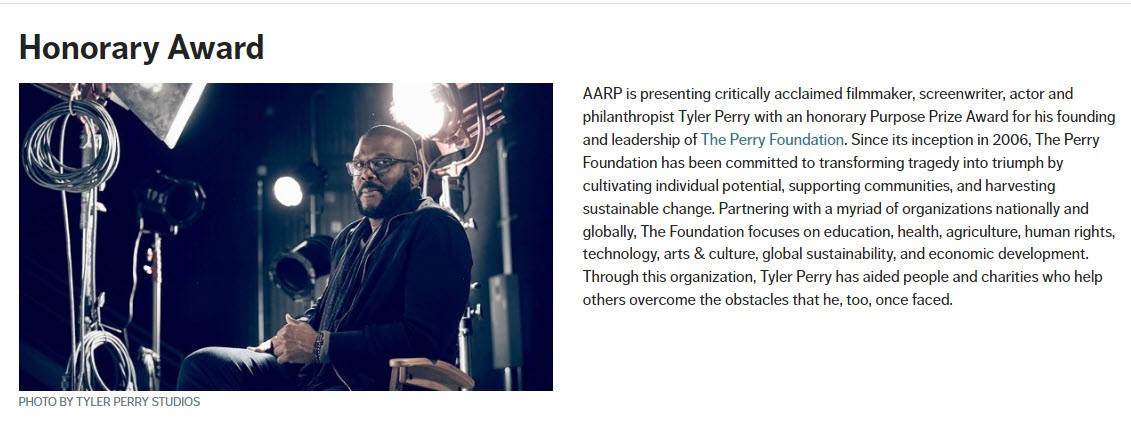Words Matter
Incorrect word use diminishes Perry’s efforts and accomplishments
Tyler Perry will receive an honorary AARP Purpose Prize® award in 2023. According to the AARP website:
The AARP® Purpose Prize® award supports AARP's mission by honoring extraordinary people ages 50 and older who tap into the power of life experience to build a better future for us all.
Winners are typically not celebrities; they are ordinary people who have formed non-profits that make a difference, and they receive $50,000 for their organization.
I wasn’t familiar with this award when I saw a news announcement that Tyler Perry would receive an honorary version of it.
I applaud the effort to recognize Perry’s good works, but here’s the thing. Dictionary.com defines honorary as:
Given for honor only, without the usual requirements, duties, privileges, emoluments, etc.
Cambridge Dictionary defines it this way:
given as a reward, without qualifying in a standard way
By calling this award honorary, AARP is diminishing the great work Tyler Perry has done through his foundation.
I understand that AARP would like to recognize Perry’s contributions (and get the benefit of some positive press in doing so), but that’s not the message conveyed by calling this an honorary award.
Most people know that when colleges and universities confer honorary degrees, the recipients are not students and have not completed course requirements. For example, Taylor Swift was awarded an honorary Doctor of Fine Arts degree from New York University, a school she never attended.
Am I being a language nitpicker? Yes, because accuracy and clarity in language is important.
AARP would have been more accurate to call this a special recognition or special service award.
- Read this Before You Sign with AuthorHouse - July 1, 2025
- Book Review: America May God Thy Gold Refine - June 30, 2025
- A Tale of Two Book Reviews - June 24, 2025





